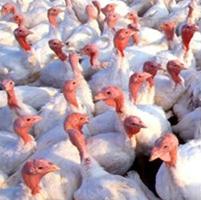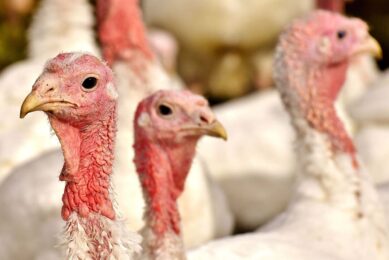US turkey industry, food safety focus

National Turkey Federation’s (NTF) Chairman of the Technical and Regulatory Committee told members of the House Agriculture Committee that as the food safety debate moves to the forefront of the congressional agenda, any changes that are enacted should ensure in measurable improvement in public health.
“As science and technology improves, it is highly plausible that the food safety inspection process would and should be improved as well,” said NTF Chairman of the Technical and Regulatory Committee, Bob Reinhard.
“Changes to FSIS and FDA statutory authority should not be so prescriptive that they stifle innovation and prevent industry, the Secretary of Agriculture, or the Secretary of Health and Human Services from making science-based improvements with definable public health outcomes.”
Reinhard explained to committee members that FSIS’ Pathogen Reduction/Hazard Analysis Critical Control Point (HACCP) programme and Sanitation Standard Operating Procedures (SSOPs) have yielded significant and measurable successes for the turkey industry as shown by FSIS’ pathogen testing data. Since 2000, the meat and poultry industry has seen a 74% reduction in the incidence of Listeria monocytogenes in ready-to-eat products. Since 1996, the industry has seen a 64% reduction in the prevalence of Salmonella on raw turkey carcasses.
Although successful, Reinhard said better attribution data is needed to confirm that these food safety improvements have a correlation to the decline in foodborne illness. Reinhard said that it is not necessary to re-build a system, but there is an opportunity to enhance a system that is already working. “Now is the time to build on successes and use data with attribution information to drive the changes that will lead to improvements in public health.”
“All food safety systems should be designed to manage and reduce risk to the food supply,” Reinhard said. “Congress may want to consider giving FSIS expanded authority to allocate inspection resources according to risk so that inspectors are focused most closely on those tasks that will have the biggest impact on food safety.”
Reinhard closed by encouraging Congress not to pass food safety legislation that focuses primarily on new way to assess blame and punishment when a food safety problem has arisen. Rather, Reinhard said, Congress should “give USDA and FDA additional tools to collaborate with industry, consumers, academia and all other stakeholders to prevent food safety problems from occurring in the first place.”
National Turkey Federation
Related link:












